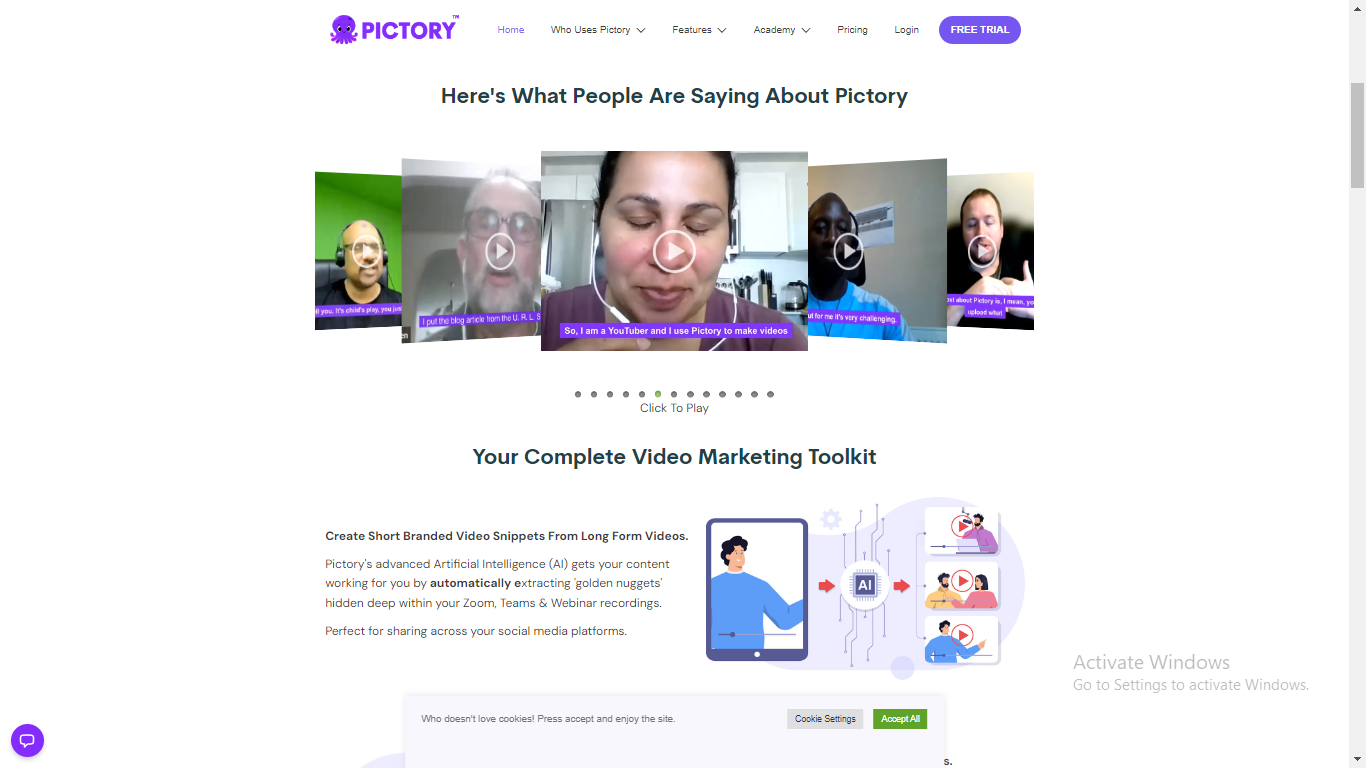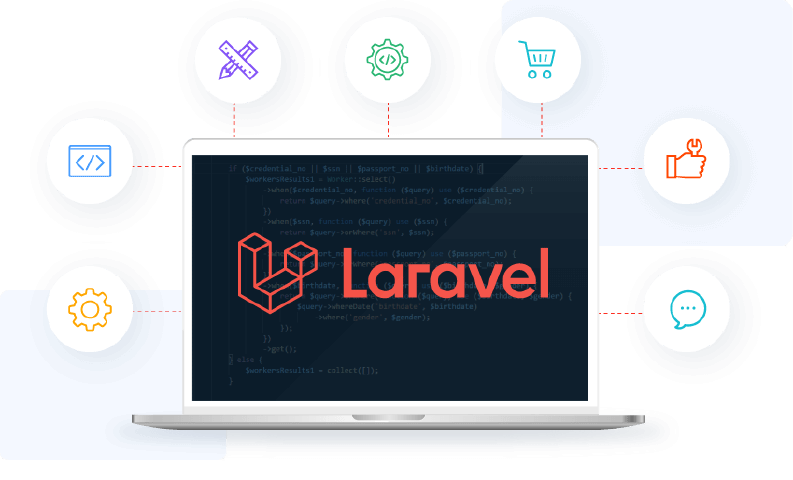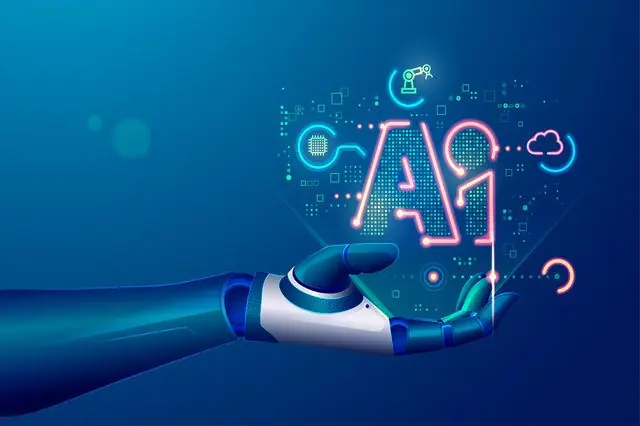Best AI Tools for Web Designers
Adobe Sensei: Adobe Sensei is an AI-powered tool that helps web designers automate design tasks and create personalized experiences. It uses machine learning to analyze user behavior and preferences, allowing designers to create custom content and design elements that are tailored to each user’s needs.
Sketch2Code: Sketch2Code is an AI-powered tool that helps web designers convert hand-drawn sketches into functional HTML code. It uses machine learning to recognize design elements and generate code that matches the designer’s intent, reducing the time and effort required to build a website from scratch.
Figma: Figma is an AI-powered design tool that helps web designers create and collaborate on design projects. It uses machine learning to analyze user behavior and provide insights into design trends and best practices, allowing designers to create high-quality designs that are optimized for user engagement.
Canva: Canva is an AI-powered graphic design tool that helps web designers create stunning visuals for their websites. It uses machine learning to suggest design elements and layouts, as well as provide access to a vast library of design templates, fonts, and images.
Webflow: Webflow is an AI-powered web design platform that allows designers to create and launch fully functional websites without coding. It uses machine learning to automate design tasks and provide insights into user behavior, allowing designers to create custom websites that are optimized for user engagement and conversion.
Best AI Tools for Developers 2023-2024 Guide
- GPT-4-based Chatbots: Chatbots powered by advanced language models like GPT-4 can offer real-time customer support and enhance user engagement on websites. These AI-driven chatbots can understand and respond to user queries, helping to improve user experience.
- AutoML Platforms: Automated Machine Learning (AutoML) platforms like Google AutoML, H2O.ai, and DataRobot can simplify the process of building and deploying machine learning models for tasks like recommendation engines, content personalization, and user behavior analysis.
- Image Recognition and Object Detection: Tools like Amazon Rekognition, Google Vision AI, and OpenCV can assist web developers in implementing image recognition and object detection features. These can be used for various applications, including image tagging, facial recognition, and image-based search.
- Website Optimization Tools: AI-powered optimization tools like Google Optimize and Optimizely use machine learning to conduct A/B testing and deliver personalized content to website visitors. These tools help improve conversion rates and user engagement.
- AI-Powered Content Generation: AI content generation tools, such as GPT-based text generators or Canva AI design tools, can assist web developers in generating high-quality written content and visuals quickly. This can be beneficial for blog posts, social media updates, and other website content.
Remember to explore the latest AI tools and technologies as the field continues to advance, and consider how they can be applied to enhance the user experience, streamline development processes, and improve the functionality of your web applications.





9 Comments
Foster Knapp
To the anujkrp.com Webmaster! it’s Eric and I ran across anujkrp.com a little while ago.
Seems great… now what?
I mean, when someone like me discovers your website – either by a Search or just bouncing around – what happens next? Are you get a lot of leads from your site, or enough to make you happy?
Honestly, most business websites fall a bit short when it comes to producing paying customers. Research show that 70% of a site’s visitors disappear and are gone forever after just a moment.
Here is an idea…
Why not making it really EASY for any visitor who shows up to get a personal phone call from you as soon as they hit your site…
You can do this –
Web Visitors Into Leads is a tool that’s operates on your site, ready to collect every visitor’s Name, Email address and Phone Number. It notifies you the moment they let you know they’re interested – so that you can talk to that lead as they’re actually browsing your site.
CLICK HERE https://advanceleadgeneration.com to experience a Live Demo with Web Visitors Into Leads now to realize precisely how it operates.
You will be astonished – the contrast between reaching out to someone within just 5 minutes versus a half-hour or more later could enhance your results 100-fold.
It gets even better… once you’ve collected their phone number, with our new SMS Text With Lead function, you can automatically start a text (SMS) discussion.
That way, even if you don’t close a deal immediately, you can stay connected with text messages for new deals, content links, or even just “how you doing?” notes to create a relationship.
Rather sweet – AND effective.
CLICK HERE https://advanceleadgeneration.com to discover what Web Visitors Into Leads can do for your business.
You can be converting up to 100X more leads today!
Eric
PS: Web Visitors Into Leads offers a FREE 14 days trial – and it even comes with International Long Distance Calls.
You have customers eager to talk with you at this moment… don’t keep them waiting.
CLICK HERE https://advanceleadgeneration.com to experience Web Visitors Into Leads today.
If you’d prefer to unsubscribe click here https://advanceleadgeneration.com/unsubscribe.aspx?d=anujkrp.com
Just a short note – the name and email used in this email, Foster and Knapp, are dummy data and not actual contact information. We appreciate transparency and wish to ensure you’re aware! If you want to get in touch with the actual person behind this message, kindly visit our website, and we’ll associate you with the correct individual.}
Joe Stubbs
To the anujkrp.com Manager.
My name’s Joe and I just found your site at anujkrp.com…
I found it after a brief search, so your SEO’s working out…
Material looks good…
One thing’s missing though…
A RAPID, CONVENIENT way to get in touch with you IMMEDIATELY.
Because studies show that a potential customer like me will only linger a few seconds – 7 out of 10 disappear almost instantly, Click Click Click… then gone.
I have the solution:
Visitor Engagement Widget is a tool that’s functions on your website, set to collect any visitor’s Name, Email address, and Phone Number. You’ll know instantly they’re interested and you can call them directly to CHAT with them – literally while they’re still on the web looking at your website.
CLICK HERE https://turboleadgeneration.com to experience a Live Demo with Web Visitors Into Leads now to see exactly how it works and even test it out… it could be big for your enterprise.
Moreover, now that you’ve got that phone number, with our new SMS Text With Lead feature, you can automatically start a text (SMS) conversation pronto… which is so powerful, because getting in touch with someone within the first 5 minutes is 100 times more productive than waiting 30 minutes or more later.
The new text messaging feature lets you keep in touch regularly with new offers, content links, even just check-in notes to forge a relationship.
All I’ve just described is incredibly straightforward to implement, cost-effective, and lucrative.
CLICK HERE https://turboleadgeneration.com to find out what Visitor Engagement Widget can do for your company, possibly converting up to 100X more viewers into leads today!
Joe
PS: Lead Conversion Tool offers a FREE 14 days trial – and it even includes International Long Distance Calling.
You have customers waiting to chat with you right now… don’t keep them waiting.
CLICK HERE https://turboleadgeneration.com to test Lead Conversion Tool now.
If you’d prefer to unsubscribe click here https://turboleadgeneration.com/unsubscribe.aspx?d=anujkrp.com
Just a rapid remark – the names and email employed in this note, Joe and Stubbs, are placeholders and not really actual contact details. We value openness and desired to make sure you’re aware! If you wish to get in touch with the actual one behind this communication, do check out our website, and we’ll connect you with the appropriate individual.
Sharon Bankston
Dear anujkrp.com Admin.
I am Sharon and I just recently stumbled upon your website – anujkrp.com – in the searches.
This is what that signifies to me…
Your SEO’s doing its job.
You’re receiving eyeballs – at least mine.
Your content’s quite good, wouldn’t change a single thing.
BUT…
Eyeballs do not pay the invoices.
CUSTOMERS do.
And surveys indicate that 7 out of 10 visitors to a site like anujkrp.com will visit, have a look, and then head for the hills without doing else.
It’s like they never even were even there.
You can fix this.
You can make it very simple for them to raise their hand, say, okay, let’s talk without demanding them to even pull their cell phone from their pocket… courtesy of Visitor to Lead Widget.
Visitor to Lead Widget is a software widget that lives on your webpage, set and waiting to capture any viewer’s Name, Email address, and Phone Number. It lets you know immediately immediately – so you can converse with that lead immediately immediately… BEFORE they leave.
CLICK HERE https://turboleadgeneration.com to test a Live Demo with Lead Conversion Software now to see precisely how it functions.
Now it’s also true that when reaching out to hot leads, you MUST act fast fast – the difference between between contacting someone someone within 5 minutes 5 minutes versus is massive!
That’s what makes our new SMS Text With Lead feature so powerful so powerful… you’ve got their number, so now you can start a text message a text message (SMS) conversation with them… so even if if they don’t take you up on your offer immediately, you continue to text them them new proposals, content links, and new reasons to do business with you.
This could change everything for you and your company.
CLICK HERE https://turboleadgeneration.com to learn more about everything Visitor to Lead Widget can do and start turing turing eyeballs into revenue.
Sharon
PS: Visitor to Lead Widget offers a FREE 14 days trial period!
It even includes International Long Distance Calling.
Paying customers are out there.
Starting connecting connecting today by CLICKING HERE https://turboleadgeneration.com to try Web Visitors Into Leads now.
If you’d like to unsubscribe to unsubscribe click here https://turboleadgeneration.com/unsubscribe.aspx?d=anujkrp.com
Only a rapid remark – the identities and email used in this communication, Sharon and Bankston, are placeholders and not actually actual contact details. We appreciate openness and desired to confirm you’re aware! If you aspire to communicate with the genuine person behind this note, kindly visit our site, and we’ll unite you with the right person.
Glenna FitzGibbon
Dear to anujkrp.com Admin.
This is Glenna, and I just found your site, anujkrp.com.
It’s got much going for it, but I’ve got an idea to make it even MORE effective.
Check out Web Visitors Into Leads – CLICK HERE https://advanceleadgeneration.com for a real-time demo right now.
Web Visitors Into Leads is a software that’s functions on your site, ready to grab every visitor’s Name, Email address, and Phone Number. It signals you the moment they let you know they’re interested – so that you can talk to that lead as they’re literally viewing your site.
Moreover, when you’ve captured their phone number, with our new SMS Text With Lead feature, you can instantly start a text (SMS) discussion… and if they don’t agree on your offer then, you can follow up with text messages for new offers, content links, or even just “how you doing?” notes to build a relationship.
CLICK HERE https://advanceleadgeneration.com to discover what Web Visitors Into Leads can offer for your business.
The distinction between reaching out to someone in 5 minutes compared to a half-hour could mean you could be converting up to 100X more leads now!
Glenna
PS: Studies show that 70% of a site’s visitors vanish and are gone in just a moment. Don’t continue losing them.
Web Visitors Into Leads offers a FREE 14 days trial – and it even includes International Long Distance Calling.
You have customers eager to speak with you at this moment… don’t leave them waiting.
CLICK HERE https://advanceleadgeneration.com to try Web Visitors Into Leads today.
Should you like to unsubscribe click https://advanceleadgeneration.com/unsubscribe.aspx?d=anujkrp.com
Merely a brief note – the names and email used here, Glenna and FitzGibbon, are simulations and not real contact details. We appreciate transparency and want to make you’re aware! If you want to contact with the actual person responsible for this message, kindly visit our website, and we’ll link you with the right individual.}
Eric Jones
Hi anujkrp.com Owner! I just found your site, quick question…
My name’s Eric, I found anujkrp.com after doing a quick search – you showed up near the top of the rankings, so whatever you’re doing for SEO, looks like it’s working well.
So here’s my question – what happens AFTER someone lands on your site? Anything?
Research tells us at least 70% of the people who find your site, after a quick once-over, they disappear… forever.
That means that all the work and effort you put into getting them to show up, goes down the tubes.
Why would you want all that good work – and the great site you’ve built – go to waste?
Because the odds are they’ll just skip over calling or even grabbing their phone, leaving you high and dry.
But here’s a thought… what if you could make it super-simple for someone to raise their hand, say, okay, let’s talk without requiring them to even pull their cell phone from their pocket?
You can – thanks to revolutionary new software that can literally make that first call happen NOW.
Web Visitors Into Leads is a software widget that sits on your site, ready and waiting to capture any visitor’s Name, Email address and Phone Number. It lets you know IMMEDIATELY – so that you can talk to that lead while they’re still there at your site.
You know, strike when the iron’s hot!
CLICK HERE https://rushleadgeneration.com to try out a Live Demo with Web Visitors Into Leads now to see exactly how it works.
When targeting leads, you HAVE to act fast – the difference between contacting someone within 5 minutes versus 30 minutes later is huge – like 100 times better!
That’s why you should check out our new SMS Text With Lead feature as well… once you’ve captured the phone number of the website visitor, you can automatically kick off a text message (SMS) conversation with them.
Imagine how powerful this could be – even if they don’t take you up on your offer immediately, you can stay in touch with them using text messages to make new offers, provide links to great content, and build your credibility.
Just this alone could be a game changer to make your website even more effective.
Strike when the iron’s hot!
CLICK HERE https://rushleadgeneration.com to learn more about everything Web Visitors Into Leads can do for your business – you’ll be amazed.
Thanks and keep up the great work!
Eric
PS: Web Visitors Into Leads offers a FREE 14 days trial – you could be converting up to 100x more leads immediately!
It even includes International Long Distance Calling.
Stop wasting money chasing eyeballs that don’t turn into paying customers.
CLICK HERE https://rushleadgeneration.com to try Web Visitors Into Leads now.
If you’d like to unsubscribe click here https://rushleadgeneration.com/unsubscribe.aspx?d=anujkrp.com
Eric Jones
Hi anujkrp.com Administrator. Eric here with a quick thought about your website anujkrp.com…
I’m on the internet a lot and I look at a lot of business websites.
Like yours, many of them have great content.
But all too often, they come up short when it comes to engaging and connecting with anyone who visits.
I get it – it’s hard. Studies show 7 out of 10 people who land on a site, abandon it in moments without leaving even a trace. You got the eyeball, but nothing else.
Here’s a solution for you…
Web Visitors Into Leads is a software widget that’s works on your site, ready to capture any visitor’s Name, Email address and Phone Number. You’ll know immediately they’re interested and you can call them directly to talk with them literally while they’re still on the web looking at your site.
CLICK HERE https://blazeleadgeneration.com to try out a Live Demo with Web Visitors Into Leads now to see exactly how it works.
It could be huge for your business – and because you’ve got that phone number, with our new SMS Text With Lead feature, you can automatically start a text (SMS) conversation – immediately… and contacting someone in that 5 minute window is 100 times more powerful than reaching out 30 minutes or more later.
Plus, with text messaging you can follow up later with new offers, content links, even just follow up notes to keep the conversation going.
Everything I’ve just described is extremely simple to implement, cost-effective, and profitable.
CLICK HERE https://blazeleadgeneration.com to discover what Web Visitors Into Leads can do for your business.
You could be converting up to 100X more eyeballs into leads today!
Eric
PS: Web Visitors Into Leads offers a FREE 14 days trial – and it even includes International Long Distance Calling.
You have customers waiting to talk with you right now… don’t keep them waiting.
CLICK HERE https://blazeleadgeneration.com to try Web Visitors Into Leads now.
If you’d like to unsubscribe click here https://blazeleadgeneration.com/unsubscribe.aspx?d=anujkrp.com
binance us Регистрация
Your article helped me a lot, is there any more related content? Thanks!
Skapa ett gratis konto
Your point of view caught my eye and was very interesting. Thanks. I have a question for you.
binance registracija
Your point of view caught my eye and was very interesting. Thanks. I have a question for you.